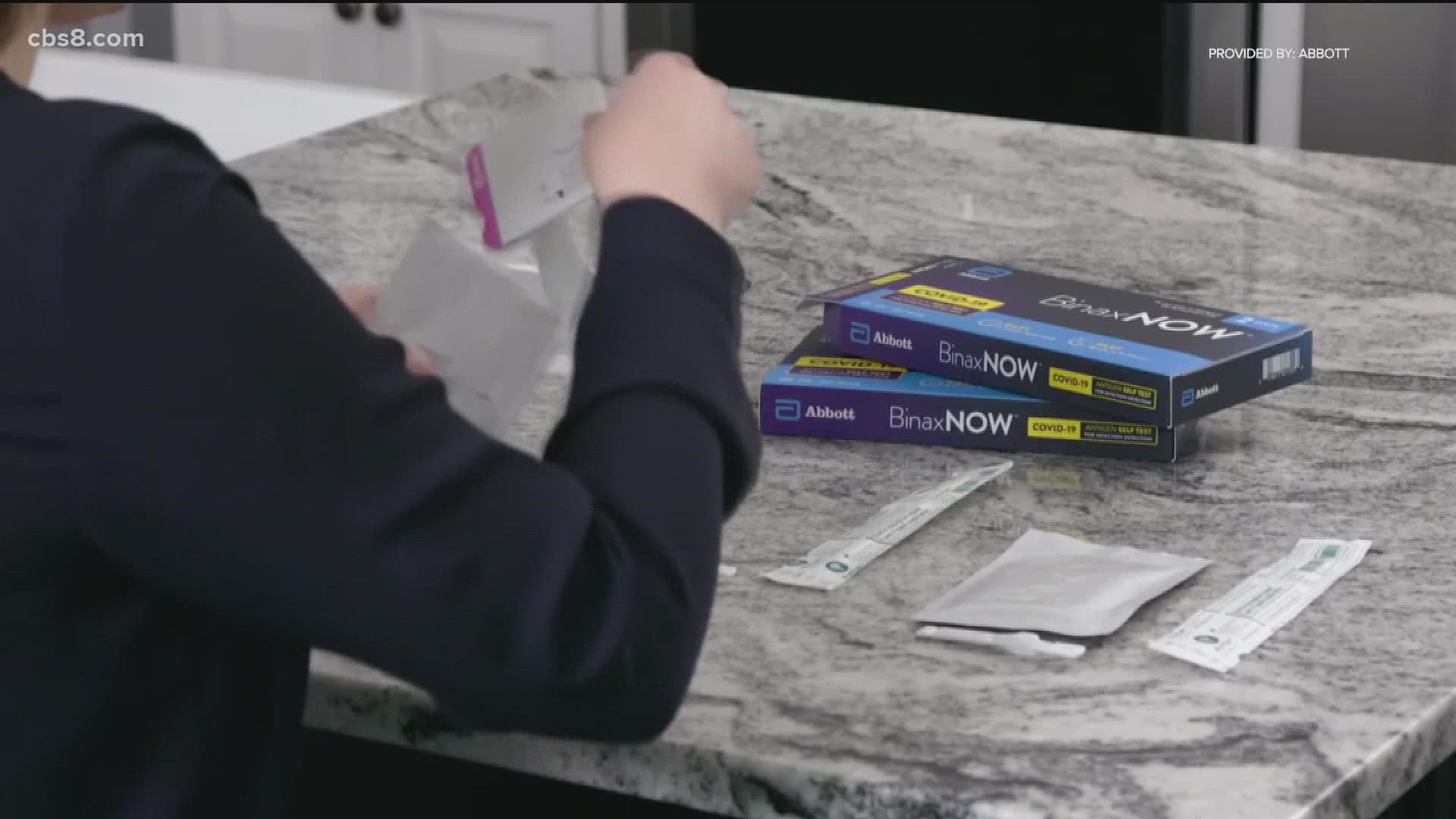SAN DIEGO — Doctors say the timeline definitely varies for those in quarantine versus isolation, but there can be some overlap.
"You worry like…am I going to start having the symptoms they talk about?” said mom Elaine Cooper.
At home in Los Angeles, Cooper is in quarantine while her college-student son Marc is also home with COVID and the flu.
“Right now, I am in a different room with the door closed, but again I know particles can travel, so it is a question of is it inevitable or are there good things you can do?” Cooper said.
UCSD Assistant Clinical Professor of Medicine and Infectious Disease Dr. Shira Abeles said isolation is for when somebody actually has the infection, quarantine is when you are in that period of risk because you had an exposure.
Doctors say those who are infected need to isolate in a separate room at home while those in quarantine need to stay home and not have contact with anyone. But for how long and what if you are the sick person's caregiver?
"People are generally most infectious kind of at that starting right when they develop symptoms,” Abeles said.
Those with COVID isolate for 10 days but those in quarantine may be in it for at least 14 days.
“In general right now, it is 10 days from the start of symptoms until the end of symptoms because we know if there is a lot of virus shedding and if you are quite contagious and extremely contagious with omicron in the beginning,” Dr. Abeles.
Dr. Abeles said someone could be spreading the virus for 5 to 7 days, they can come out of isolation of day 11 if they no longer have symptoms; a quarantined person with no symptoms could also be done sooner if they are vaccinated and show no symptoms and get tested.
"There are some people who do test during that time. I may be able to have that quarantine shortened to 10 days if they can test negative and continue to have no symptoms,” Dr. Abeles.
Cooper said her son should be out of isolation on Christmas Day.
"Just looking forward to him being healthy, and that we can kind of return to our normal routine,” Cooper said.
If somebody is severely immunocompromised the isolation could be extended.
“For people who are very immune-compromised that window may be made longer because their body can’t necessarily build that immune system to control the virus as quickly,” Dr. Abeles said.
WATCH RELATED:

